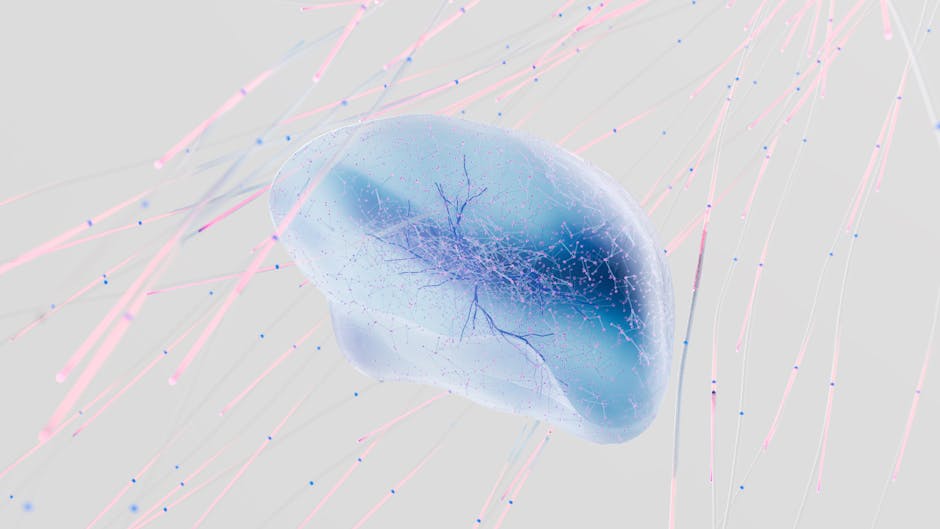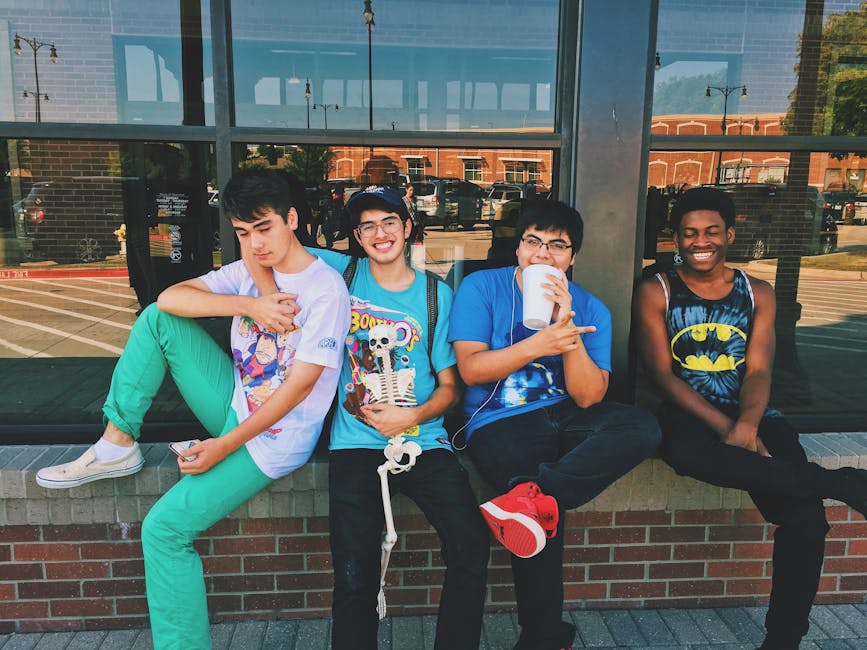
Understanding the Adolescent Counseling Journey
Adolescent counseling is a specialized form of therapy designed to support young people (typically ages 12-18) through the unique challenges of the teenage years. This therapeutic approach addresses mental health concerns while considering the specific developmental needs of adolescents.
Quick Guide to Adolescent Counseling:
* Purpose: Supports teens with emotional regulation, identity formation, and building coping skills
* Types: Individual, group, family, trauma-informed, and experiential therapy
* Common Issues: Anxiety, depression, relationship problems, self-esteem, substance use
* Benefits: Improved emotional health, better family relationships, improved academic performance
* Warning Signs: Persistent mood changes, withdrawal, declining grades, risky behaviors
Adolescence brings significant hormonal changes, identity exploration, and social pressures that can overwhelm even the most resilient teens. According to research, about 1 in 5 adolescents experience a mental health disorder each year, yet more than 60% of youth with major depression don’t receive treatment.
Teenagers face unprecedented challenges—from academic pressure and social media comparison to family conflicts and pandemic-related stressors. The stakes are high: suicide is now the second leading cause of death among people aged 10-24 in the United States, with rates increasing 56% among youth ages 10-24 between 2007 and 2017.
What makes adolescent counseling different from adult therapy is its focus on developmental stage and the integration of family systems. Therapists create a non-judgmental, safe environment where teens can express themselves openly without fear of criticism or punishment.
“Parenting is hard, and even when you are doing your best, it can feel like it’s not enough,” notes one counseling center. The good news is that with proper support, adolescents can develop healthy thinking patterns, relationships, and boundaries that set the foundation for positive adult experiences.
I’m Emmanuel Romero, a Licensed Marriage & Family Therapist with experience in adolescent counseling, having served as a Mental Health Specialist in the Irvine Unified School District where I designed and led mental health programs for middle and high school students.

Adolescent counseling terminology:
– adolescent therapist near me
– grief counseling for teens
Adolescent Counseling 101: Definition, Goals & How It Differs From Adult Therapy
When we talk about adolescent counseling, we’re referring to a specialized approach that meets teenagers where they are. It’s therapy designed specifically for young people aged 12-18, creating a space where they can explore their challenges without judgment or pressure.
At its heart, adolescent counseling aims to help teens steer the often turbulent waters of adolescence. We focus on building healthy coping skills, supporting them as they figure out who they are, and improving how they communicate with others. Teens also learn to manage their emotions, address specific mental health concerns, and develop problem-solving abilities that will serve them throughout life.
“We love working with youth because they have the opportunity to begin developing healthy thinking patterns, relationships, boundaries and more at a young age,” our team at Mr. Therapist often shares. When teens learn these skills early, they’re less likely to struggle with entrenched patterns later in adulthood.
Some teens benefit from short-term counseling that tackles specific issues like test anxiety or friendship drama. Others need longer-term support for deeper challenges like trauma, depression, or family conflicts. We tailor our approach to what each teen needs.
Confidentiality works differently in adolescent counseling than in adult therapy. While we maintain privacy to build trust with our teen clients, we also balance this with parental rights and safety concerns. In California, teens 12 and older can actually consent to certain mental health services independently, though we generally find that involving parents—in appropriate ways—strengthens the healing process.
Building a genuine connection with teenagers requires special skills. We understand teen culture, speak their language (without trying too hard!), and create an environment where they feel respected rather than lectured.
What Makes Adolescent Counseling Unique?
Adolescent counseling stands apart from other therapeutic approaches in several key ways:

Hormonal and Neurological Development plays a huge role in teen behavior. Their brains are still developing—especially the prefrontal cortex that handles decision-making and impulse control. Add in the hormonal rollercoaster, and you’ve got a perfect storm of emotional volatility. Good counselors understand this biological context instead of just seeing “difficult behavior.”
Identity Formation is central to the teenage experience. Adolescents are actively exploring who they are—their values, beliefs, interests, sexual orientation, gender identity, and future dreams. Adolescent counseling provides a safe harbor for this exploration, free from judgment or pressure.
Peer Influence reaches its peak during these years. Friends and social standing can feel more important than almost anything else. Counselors recognize the powerful impact of these relationships and help teens steer social dynamics in healthy ways.
School Context creates a complex environment that significantly impacts teen mental health. Academic pressures, social hierarchies, and extracurricular demands all contribute to stress. Effective counseling addresses these school-based challenges directly.
Family Systems are also adjusting to teens’ changing needs. The natural push for independence often creates tension at home. At Mr. Therapist, we help guide family dynamics while supporting both the teen’s growing autonomy and parents’ legitimate concerns.
Our Emotion-Focused Therapy approach helps teens use their emotions as tools for healing rather than sources of confusion or shame. We believe emotions contain valuable information when we learn to listen to them.
Adolescent Counseling vs. Adult Counseling
While the fundamentals of therapy remain consistent across age groups, working with teens differs from adult therapy in important ways:
Brain Plasticity and Development gives teens an advantage in therapy. Their brains are still forming neural pathways, offering greater opportunity for positive change. This makes adolescents particularly responsive to techniques that help rewire thought patterns and emotional responses.
Autonomy vs. Dependency creates a unique therapeutic dynamic. Adults enter therapy as independent individuals making their own choices. Teenagers, however, exist in that in-between state—not children anymore, but not fully independent adults either. We respect their growing independence while acknowledging they still need guidance.
Parental Involvement is typically part of adolescent counseling. This might mean occasional check-ins or regular family sessions, depending on what’s needed. We work to balance the teen’s need for privacy with the benefits of family support.
Legal Considerations create different parameters for teen therapy. In California, adolescents have certain rights to confidential mental health services, but these rights have important limitations, particularly around safety concerns.
Communication Styles must adapt to connect effectively with teens. This might mean greater comfort with technology, understanding current social media platforms, or using creative approaches rather than just traditional “talk therapy.”
As we often tell families at Mr. Therapist, “We position clients as experts on their own lives, with therapists providing tools and support.” This collaborative approach honors teens’ experiences while offering the guidance they need to thrive.
Why Teens Need Counseling Now More Than Ever
Our teenagers are navigating a world that looks drastically different from the one we grew up in. The mental health challenges they face are unique to their generation, making adolescent counseling more essential than ever before.
The stress our teens experience has reached alarming levels. School isn’t just about learning anymore—it’s about excelling on standardized tests, building the perfect college application, and juggling multiple extracurriculars to stand out from the crowd. When the pandemic hit, it added even more weight to their already heavy load: disrupted education, isolation from friends, family financial worries, and in many cases, grief from losing loved ones.

Perhaps nothing has transformed the teenage experience more dramatically than social media. These platforms weren’t designed with mental health in mind—they were built to keep users engaged, often at the cost of wellbeing. Our teens are forming their identities under the constant scrutiny of digital audiences, where every awkward moment or mistake can be preserved and shared. The result? Harmful comparison, cyberbullying, and a persistent feeling that they’re always being judged.
The numbers tell a heartbreaking story. Suicide rates among young people ages 10-24 jumped by 56% between 2007 and 2017. About one in five teens experiences a mental health disorder each year, yet more than 60% of youth with major depression receive absolutely no treatment. Recent research even shows that most adolescents aren’t getting adequate counseling about risky behaviors from their doctors.
The scientific research on adverse childhood experiences (ACEs) makes it clear that untreated trauma and stress during these formative years can affect both mental and physical health for decades to come. But there’s hope in this research too—the right interventions can significantly reduce these negative impacts.
Adolescent counseling isn’t just about helping teens in crisis—though that’s certainly important. It’s also about prevention. By addressing emerging mental health concerns early, therapists help young people develop resilience, the emotional muscle that helps them adapt to challenges and recover from setbacks.
“Adolescents today face unprecedented social media pressures, exposure to issues like bullying and substance use, and skyrocketing suicide rates,” as many counseling professionals have noted. These realities make professional support not just helpful, but necessary.
At Mr. Therapist, we believe deeply in the power of early intervention through adolescent counseling. When we help teens develop emotional regulation skills and healthy coping mechanisms during these crucial years, we’re not just addressing today’s problems—we’re helping build a foundation for lifelong mental wellness.
The pandemic aftershocks continue to reverberate through our teens’ lives, making this a critical time to ensure they have the support they need. By providing a safe space to process these extraordinary experiences, adolescent counseling helps prevent today’s challenges from becoming tomorrow’s entrenched patterns.
Issues & Challenges Adolescent Counseling Can Address
Growing up has never been easy, but today’s teens face a unique set of challenges. At Mr. Therapist, we’ve seen how adolescent counseling can provide vital support during these formative years.
Anxiety often tops the list of concerns we address. Whether it’s the butterflies before a class presentation or debilitating worry that interferes with daily life, teens experience anxiety in many forms. Our Anxiety Therapy for Teens helps young people recognize their triggers and develop practical coping strategies they can use anywhere – from the classroom to the soccer field.
Depression in teenagers doesn’t always look like sadness. Many parents are surprised to learn that irritability, withdrawal from activities, or sudden academic struggles can signal depression. Through compassionate adolescent counseling, we create space for teens to explore these feelings and gradually rebuild their sense of hope and connection.
Trauma doesn’t discriminate by age. Whether from a car accident, family violence, or community tragedy, traumatic experiences can leave lasting imprints on developing minds. Our trauma-informed approach helps teens process these experiences at their own pace, reducing symptoms like nightmares, flashbacks, or feeling constantly on edge.
“I thought my son was just being difficult,” one parent shared. “I had no idea his behavior was connected to anxiety. The tools he’s learned in therapy have helped our whole family.”

Substance use often begins during the teenage years. Rather than lectures that push teens away, our counselors use motivational interviewing to help adolescents explore their own values and goals, empowering them to make healthier choices.
Self-harm behaviors like cutting or burning serve as unhealthy coping mechanisms for emotional pain. Through adolescent counseling, teens learn to identify emotional triggers and develop alternatives that provide relief without causing harm.
Bullying, whether in the hallways or online, can devastate a teen’s self-esteem and sense of safety. We help young people process these painful experiences while developing strategies to protect themselves and rebuild confidence.
For LGBTQIA+ youth, adolescence brings additional layers of complexity. Our affirming approach provides a judgment-free zone for exploring identity questions while navigating potential family or social challenges.
Academic pressure has reached unprecedented levels, with many teens feeling crushed under expectations. Adolescent counseling helps young people develop balanced perspectives and effective study habits while addressing the anxiety often lurking beneath perfectionism.
Body image concerns peak during adolescence as bodies change and social comparisons intensify. We help teens develop healthier relationships with food and their bodies through self-compassion and critical thinking about harmful cultural messages.
Parents often ask us, Does Therapy Help Troubled Teens? The research consistently shows that therapeutic intervention makes a significant difference, especially when families participate in the healing process.
At Mr. Therapist, our Emotion-Focused approach recognizes that emotions provide valuable information rather than problems to suppress. By learning to understand and regulate their emotions, teens develop skills that serve them not just through adolescence, but for their entire lives.
“The teenage years are hard enough without facing these challenges alone,” notes Manny Romero, founder of Mr. Therapist. “Adolescent counseling provides both the support and skills teens need to steer this crucial developmental stage.”
Counseling Options & Therapeutic Techniques for Adolescents
When it comes to adolescent counseling, there’s no one-size-fits-all approach. At Mr. Therapist, we carefully tailor treatment plans using evidence-based methods that genuinely connect with teens and their unique situations.
Individual therapy creates that crucial private space where teens can open up about personal struggles without fear of judgment. These one-on-one sessions build trust first—something we consider the foundation of effective adolescent counseling. Many teens find it easier to share difficult feelings when they don’t have to worry about others in the room.
Group therapy brings teens facing similar challenges together, showing them they’re not alone. There’s something powerful about hearing “I feel that way too” from a peer. These groups help break down isolation while providing a safe practice ground for social skills under the guidance of a trained therapist.
Family therapy recognizes what we see every day in our practice—teens exist within family systems, and lasting change often requires adjustments throughout that system. When parents and sometimes siblings participate in sessions, communication improves, conflicts find resolution, and the entire family learns how to support the teen’s growth journey.

At Mr. Therapist, we believe all adolescent counseling should be trauma-informed. This means we create a space where teens who’ve experienced trauma feel safe, understood, and never re-traumatized. We understand that many adolescents carry invisible wounds that influence their behavior and emotions.
For teens who find it hard to express themselves through talking, experiential modalities offer different paths to healing. Whether it’s creating art, working with horses, making music, or participating in wilderness programs, these activity-based approaches can reach teens who might otherwise remain disconnected from the therapeutic process.
| Counseling Type | Best For | Typical Format | Key Benefits |
|---|---|---|---|
| Individual | Processing personal issues, building initial trust | Weekly 45-50 minute sessions | Privacy, personalized attention, strong therapeutic relationship |
| Group | Social anxiety, isolation, peer relationship issues | Weekly 60-90 minute sessions with 6-10 peers | Peer support, normalization, social skill development |
| Family | Family conflict, communication issues, systemic problems | Biweekly 60-90 minute sessions with family members | Improved family dynamics, shared understanding, systemic change |
| Trauma-Focused | PTSD, abuse history, significant adverse experiences | Weekly sessions using specialized protocols (EMDR, TF-CBT) | Processing traumatic memories, reducing symptoms, integration |
| Experiential | Teens resistant to talk therapy, those who learn kinesthetically | Activity-based sessions (art, music, outdoor activities) | Engagement, emotional expression through alternative means |
Our approach at Mr. Therapist weaves together multiple evidence-based techniques, with particular emphasis on Emotion-Focused Therapy (EFT). Let’s explore some of the most effective approaches we use:
Cognitive & Dialectical Behavior Approaches
Cognitive Behavioral Therapy (CBT) stands as one of the most well-researched methods for helping teens. It’s practical and results-oriented—qualities that resonate with adolescents looking for real progress. CBT helps teens see the connections between their thoughts, feelings, and behaviors, then work to replace negative thought patterns with more balanced perspectives.
“I’m noticing many of my teen clients connect with CBT because it gives them concrete tools they can use right away,” shares Manny from our team. The approach works especially well for anxiety, depression, and OCD, with teens completing practical homework assignments between sessions to reinforce new skills.
Dialectical Behavior Therapy (DBT) builds on CBT’s foundation but adds crucial skills for emotional regulation, distress tolerance, interpersonal effectiveness, and mindfulness. For teens struggling with emotional storms, self-harm, or suicidal thoughts, DBT offers practical techniques to:
- Steer overwhelming emotions without destructive behaviors
- Tolerate distress in healthier ways
- Communicate effectively in relationships
- Stay grounded through mindfulness practices
At Mr. Therapist, we often blend elements of both CBT and DBT in our adolescent counseling, teaching teens to recognize thought distortions while building emotional regulation skills through our Emotion-Focused approach.
Trauma-Focused & Experiential Methods
For teens carrying the weight of traumatic experiences, Eye Movement Desensitization and Reprocessing (EMDR) offers a powerful path to healing. Through guided eye movements (or other bilateral stimulation) while recalling difficult memories, teens can process these experiences in ways that reduce their emotional grip.
What makes EMDR particularly valuable in adolescent counseling is that it doesn’t require extensive talking about the trauma—something many teens find overwhelming. The approach has strong research support for treating PTSD in adolescents.
Experiential therapies reach teens through activities rather than conversation alone. We’ve seen remarkable breakthroughs with teens who struggled with traditional talk therapy but flourished when given alternative ways to express themselves:
Art therapy allows teens to externalize emotions through drawing, painting, or sculpture, often revealing feelings they couldn’t put into words.
Music therapy harnesses the universal language of music to process emotions and build coping skills—particularly powerful during adolescence when music often forms a core part of identity.
Equine-assisted therapy puts teens in relationship with horses, developing emotional awareness, responsibility, and connection skills in ways that feel natural and non-threatening.
Trip therapy and surf therapy (especially relevant at our San Clemente location) use outdoor challenges and natural environments to build confidence and resilience away from everyday stressors.
These approaches aren’t just creative alternatives—they’re grounded in neuroscience. We understand that emotional processing happens throughout the body, and movement, sensory engagement, and creative expression can access healing pathways that words alone might miss.
Motivational Interviewing & Strength-Based Models
When teens are ambivalent about change—perhaps knowing they should cut back on substance use but not feeling ready—Motivational Interviewing (MI) offers a gentle, effective approach. Rather than confronting resistance head-on, MI explores the teen’s own values and helps resolve their mixed feelings about behavior change.
“Teens have a finely-tuned radar for being told what to do,” one of our counselors notes. “MI respects their autonomy while guiding them toward their own healthier choices.” Scientific research on motivational interviewing confirms it works better than confrontational approaches for adolescents.
Strength-based models shift the focus from what’s wrong to what’s strong. Instead of dwelling exclusively on problems, we help teens identify their existing strengths and resources, building self-efficacy and positive identity. This approach resonates deeply with adolescents who often feel defined by their struggles rather than their capabilities.
At Mr. Therapist, our Emotion-Focused Therapy (EFT) approach complements these methods beautifully. We help teens understand that emotions aren’t problems to eliminate but valuable sources of information and guidance. This perspective transforms their relationship with difficult feelings, empowering them to use emotional experiences as tools for growth and healthy decision-making.
Getting Started: Signs, Selection & Engagement
Recognizing when your teen might need professional help is often the first hurdle for parents. While the teenage years naturally bring some emotional ups and downs, certain patterns might signal it’s time to consider adolescent counseling.
Watch for warning signs like mood changes that last longer than two weeks, withdrawing from friends and family, or a sudden drop in grades. You might notice your teen taking unusual risks, changing their sleep habits, or losing interest in activities they once loved. Expressions of hopelessness or increased irritability can also indicate your teen is struggling more than normal.
If you’re seeing these changes, don’t wait to reach out. The Learn More free text line provides immediate support—simply text “BAY” to 741741 for free, confidential crisis counseling any time, day or night.
“Parents often tell me they waited too long because they thought it was ‘just a phase,'” shares Manny Romero of Mr. Therapist. “Trust your instincts. You know your child better than anyone else.”
When you’re ready to find professional help, look for licensed professionals with specific training in adolescent development. These might include marriage and family therapists (LMFTs), clinical social workers (LCSWs), psychologists, or professional counselors. Check what your insurance covers, and consider whether the therapist has experience with your teen’s specific challenges.
Finding a counselor who understands your family’s cultural background and values is equally important. A therapist who respects your teen’s identity and cultural context can build trust more effectively, making therapy more successful.
Recognizing Red Flags
Some situations call for more immediate attention. These red flags shouldn’t be ignored:
Persistent sadness or hopelessness that doesn’t lift can indicate depression that needs professional intervention. When your typically energetic teen seems constantly down or empty for weeks, it’s time to reach out.
Self-harm talk or behavior should always be taken seriously. If you find cutting, burning, or other self-injury—or if your teen talks about wanting to hurt themselves—seek help right away through adolescent counseling.
Aggression or violent behavior that seems out of character, especially destruction of property or threats toward themselves or others, warrants prompt professional support.
Eating changes like significant weight loss, obsession with food or body image, or signs of binge eating or purging could signal an eating disorder that requires specialized care.

These more serious signs often indicate underlying issues that typically don’t resolve without proper help. Don’t hesitate to reach out—early intervention can make a tremendous difference.
Finding the Right Counselor
The connection between your teen and their therapist can make or break the counseling experience. Here’s how to find a good match:
First, look for proper credentials. Licensed Marriage and Family Therapists (LMFTs), Licensed Clinical Social Workers (LCSWs), Licensed Professional Clinical Counselors (LPCCs), psychologists, and child psychiatrists all work with teens but may have different approaches.
Next, consider their specialty areas. A therapist who works primarily with young children might not be the best fit for your 16-year-old. Ask potential therapists about their experience with your teen’s specific challenges, whether that’s anxiety, depression, trauma, or something else.
For LGBTQIA+ teens, finding affirming providers who specialize in gender and sexuality issues can be particularly important for creating a safe therapeutic space.
Don’t let finances prevent you from seeking help. Many therapists offer sliding scale fees based on your family’s financial situation, making therapy more accessible.
At Mr. Therapist, we offer specialized adolescent counseling in San Clemente, California. Our Family Therapy Orange County services can also support your whole family when needed.
When interviewing potential therapists, ask practical questions: “How do you typically work with teens?” “What’s your approach to confidentiality?” “How do you involve parents?” A good therapist will welcome these questions and give clear, thoughtful answers.
Encouraging a Resistant Teen to Try Counseling
“I don’t need therapy” is a common first response from teens. Don’t be discouraged—resistance is normal and can be overcome with the right approach.
Involve your teen in the selection process. Browse therapist profiles together and ask which ones seem like someone they might connect with. This small step respects their growing independence and gives them some control in the situation.
Work to normalize therapy in your family conversations. Share your own positive experiences if you’ve had them, or point out celebrities, athletes, or musicians your teen admires who speak openly about their mental health journeys.
Teens often respond better to hearing from peers than from parents. Look for age-appropriate videos or social media accounts where other young people share their therapy experiences positively.
“When parents model openness about mental health, it speaks volumes,” notes Manny Romero. “If you’re matter-of-fact about your own therapy or counseling, it helps remove the stigma for your teen.”
Be clear about privacy boundaries. Explain what will remain confidential between your teen and their therapist, and what safety issues might need to be shared with parents. This transparency builds trust and often eases resistance.
Initial reluctance doesn’t predict how therapy will go. Many teens who start therapy under protest end up valuing the relationship with their counselor once they’ve had a few sessions. Give the process time to work.
Maximizing Benefits: Family, School & Community Support
When it comes to adolescent counseling, the magic doesn’t just happen in the therapy room. The real change occurs when a teen’s entire support network works together. Think of therapy as the spark, but family, school, and community are the fuel that keeps positive change burning bright.
Parents, you’re not just the chauffeur to therapy appointments—you’re essential partners in your teen’s healing journey. At Mr. Therapist, we’ve seen how parent involvement dramatically improves outcomes. Our Emotion Coaching for Parents resources equip you with practical tools to validate feelings, set healthy boundaries, and model emotional intelligence at home.
The way we talk with teens can either build bridges or walls. I’ve found that listening more than speaking creates space for teens to open up. When your teenager shares something difficult, try validating their feelings before jumping to solutions. Ask open-ended questions that invite real conversation rather than one-word answers. Eye-rolling moment when you asked “How was school?” and got a mumbled “Fine”? Try “What was the most interesting part of your day?” instead.
“When I stopped lecturing my daughter and started truly listening, everything changed,” one parent shared after family sessions at our practice. “Now she actually comes to me with problems instead of hiding them.”
School counselors can be powerful allies in supporting your teen’s mental health journey. They can help implement academic accommodations, address bullying situations, and provide additional check-ins during the school day. Don’t hesitate to connect your teen’s therapist with school staff (with appropriate release forms) to create a coordinated approach.
Community connections provide teens with opportunities to practice new skills in real-world settings. Whether it’s a basketball team, art class, volunteer group, or youth center, these activities build confidence and positive social connections that reinforce therapeutic progress. Our Simple Exercises for Daily Mental Health offers practical tools teens can use between sessions.
Before, During & After Sessions
Supporting your teen through adolescent counseling is a journey with distinct phases, each requiring different kinds of support:
Before starting therapy, have an honest, judgment-free conversation about what counseling actually involves. Many teens have misconceptions from TV or movies that therapy means lying on a couch talking about childhood while someone takes notes. Clarify that modern therapy is collaborative, skill-based, and sometimes even fun. Make practical arrangements clear—who’s handling transportation, scheduling, and payment—while emphasizing that therapy isn’t punishment but a form of support, like getting a tutor for a challenging subject.
During the counseling process, consistency becomes your superpower. Maintain regular appointments and treat them as non-negotiable priorities. Provide private transportation time—the car ride to therapy isn’t the moment for “So what are you going to talk about today?” and the ride home isn’t for “So what did you discuss?” Use language that normalizes therapy: “Everyone needs support sometimes” rather than “You need to get fixed.”
When your teen’s therapist suggests family sessions or home environment changes, lean in rather than resist. These recommendations aren’t criticisms of your parenting but opportunities to strengthen your family system.
After sessions, patience becomes essential. Healing isn’t linear, and progress often comes with setbacks. Notice and acknowledge positive changes, no matter how small: “I noticed you used that deep breathing technique when you got frustrated—that was really smart.” Celebrate wins without overwhelming your teen with praise that might make them self-conscious.
As one teen client beautifully put it: “My parents stopped trying to fix everything and started just being there. That made all the difference.”
Crisis & Emergency Planning
Despite our best preventive efforts, mental health crises can occur. Having a clear plan isn’t pessimistic—it’s prudent, like having a fire extinguisher in your kitchen.
A good safety plan is developed collaboratively between the teen, parents, and therapist. This written document outlines warning signs that indicate escalating distress, internal coping strategies the teen can use, people and places that provide healthy distraction, and specific individuals the teen feels comfortable reaching out to when struggling.
The 988 Suicide & Crisis Lifeline provides 24/7 support via call, text, or chat. Save this number in both your phone and your teen’s. This free service connects people in crisis with trained counselors who provide immediate support and local referrals.
Knowing when to escalate can literally save lives. Seek immediate emergency help if your teen expresses specific suicide plans, attempts self-harm, becomes violent or uncontrollable, experiences severe medication side effects, or shows signs of psychosis (like hallucinations or delusions).
It’s also important to understand mandatory reporting requirements. As therapists, we’re legally required to report certain situations to authorities, including suspected child abuse, imminent danger to self or others, and elder or dependent adult abuse. At Mr. Therapist, we make sure all families understand these protocols at the beginning of treatment so there are no surprises.
One parent shared, “Having a crisis plan felt scary at first—like we were expecting the worst. But actually, it gave us all peace of mind. It was like having a map for territory we hoped never to visit.”
Seeking higher levels of care when needed isn’t a failure of therapy or parenting—it’s a courageous act of love and protection. Our goal at Mr. Therapist is to support your family at every step of this journey, celebrating the triumphs and standing beside you through the challenges.
Frequently Asked Questions About Adolescent Counseling
How long does adolescent counseling take?
When parents ask about the timeframe for their teen’s therapy journey, I always emphasize that healing isn’t one-size-fits-all. The length of adolescent counseling depends on your teen’s unique situation, the complexity of their challenges, and how they respond to treatment.
For teens dealing with specific, focused issues like test anxiety or adjusting to a new school, we might see significant improvement in just 8-12 sessions. These brief interventions target particular skills or coping strategies that can make a meaningful difference quickly.
Moderate concerns like mild to moderate depression or anxiety typically benefit from 3-6 months of regular sessions. This gives us enough time to identify patterns, build coping skills, and practice new ways of thinking and responding.
For teens navigating complex challenges like trauma, severe depression, or deep-rooted family conflicts, the journey may extend to a year or longer. These situations often require more time to build trust, process difficult experiences, and create lasting change.
At Mr. Therapist, we continuously evaluate progress with both teens and parents. Many of our adolescent clients naturally transition from weekly sessions to biweekly or monthly appointments as they improve—allowing them to flex their newfound emotional muscles while maintaining a supportive connection.
Will I know everything my teen says in session?
This question touches on one of the most delicate balances in adolescent counseling—honoring your teen’s growing need for privacy while keeping you appropriately informed as a parent.
In California, the legal framework actually provides adolescents with certain confidentiality rights while ensuring parents have access to essential information. Most teens need to know they have a private space to speak openly before they’ll truly engage in therapy.
At Mr. Therapist, we establish clear boundaries around confidentiality from the very first session. Generally, we maintain your teen’s privacy except in situations involving:
- Risk of harm to themselves or others
- Abuse or neglect
- Certain high-risk behaviors that require parental awareness
Rather than sharing specific details from sessions, we typically provide parents with general updates about therapeutic themes, progress, and ways you can support your teen at home. This approach builds trust with your adolescent while keeping you in the loop about their overall well-being.
As one experienced counselor puts it: “Parents acting as representatives may need to accept limited disclosure to protect a teen’s privacy.” This balanced approach creates the safety teens need while respecting parents’ rightful concern for their children.
Can counseling be done online or at school?
Today’s adolescent counseling offers more flexibility than ever before, meeting teens where they are—both literally and figuratively.
Online therapy has become a game-changer for many adolescents. Since the pandemic, we’ve finded that many teens actually prefer virtual sessions because they feel more comfortable opening up from their own space. The convenience factor can’t be overstated either—no transportation hassles, easier scheduling around packed academic calendars, and the privacy of avoiding waiting room encounters.
What surprises many parents is that research now shows online therapy can be just as effective as in-person treatment for many issues. At Mr. Therapist, we offer secure video sessions that maintain the human connection while providing the flexibility many families need.
School-based counseling provides another valuable pathway to support. Today’s schools increasingly recognize the connection between mental health and academic success, offering resources like:
On-site counselors for immediate support, partnerships with community mental health providers, crisis assessment services, and group sessions addressing common teen concerns like social anxiety or stress management.
These school services often serve as important entry points to more comprehensive care. They have the distinct advantage of convenience and help normalize mental health support within the educational environment where teens spend so much of their time.
Many of our adolescent clients benefit from a combined approach—perhaps checking in with a school counselor for academic support while engaging in deeper emotional work with us at Mr. Therapist using our specialized Emotion-Focused Therapy approach.
The most important thing isn’t where therapy happens, but that it happens with a qualified professional who connects with your teen in a meaningful way.
Conclusion
Adolescent counseling isn’t just about solving immediate problems—it’s about laying groundwork for a lifetime of emotional health. When teens receive supportive therapy during these formative years, they develop skills that serve them well into adulthood.
The journey through adolescence has always been challenging, but today’s teens face unique pressures that previous generations didn’t encounter. From social media comparison to academic stress, from pandemic disruptions to climate anxiety—young people are navigating complex emotional terrain. Professional support can make all the difference.
Research consistently shows the powerful long-term benefits when teens receive appropriate mental health support. These benefits extend far beyond just feeling better in the moment:
Teens develop stronger emotional regulation skills, learning to ride the waves of intense feelings without being overwhelmed. Their academic performance often improves as mental health challenges no longer interfere with concentration and motivation. Family relationships heal and strengthen when communication patterns improve. Perhaps most importantly, teens build resilience—that crucial ability to bounce back from life’s inevitable challenges.
At Mr. Therapist, our Emotion-Focused Therapy approach offers something uniquely valuable to adolescents. Rather than treating emotions as problems to be managed or controlled, we help teens recognize their feelings as important messengers carrying valuable information. This perspective shift can be transformative during adolescence, when emotions often feel confusing or overwhelming.
“When teens learn to listen to their emotions rather than suppress them, they find an internal guidance system that helps them make choices aligned with their authentic selves,” explains Manny Romero, founder of Mr. Therapist. “This emotional awareness becomes a lifelong skill that supports healthier relationships and decision-making.”
Parents play a crucial role in this process. Your consistent support, willingness to engage in family sessions when appropriate, and modeling of healthy emotional expression creates a foundation for your teen’s growth. By seeking help for your adolescent, you’re teaching them an invaluable lesson—that reaching out for support demonstrates strength, not weakness.
If you’re noticing concerning changes in your teen’s mood, behavior, or relationships, early intervention often prevents small challenges from escalating into larger problems. Adolescent counseling provides a safe, non-judgmental space where teens can explore their experiences with professional guidance.
At Mr. Therapist, we’re committed to supporting teens and families throughout San Clemente and Orange County with compassionate, evidence-based care. Our approach combines clinical expertise with genuine warmth, creating an environment where adolescents feel truly seen and heard.
The teenage years don’t have to be merely survived—they can be a time of profound growth, self-findy, and the development of emotional intelligence that lasts a lifetime. With the right support, your teen can transform challenges into opportunities for deeper understanding and personal strength.



